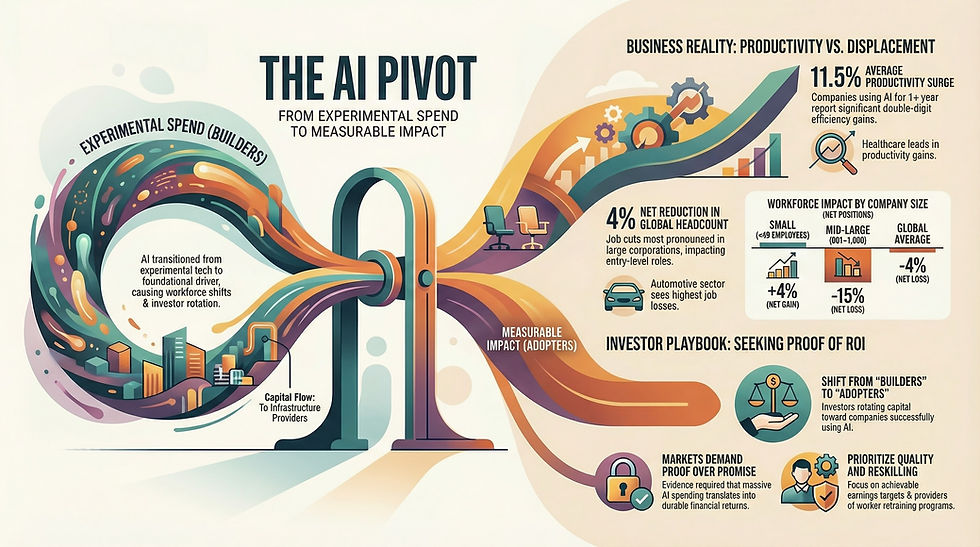Are There Any Serious People Who Believe In NFTs?
- Alpesh Patel
- Mar 19, 2022
- 4 min read
Updated: Nov 16, 2023
The frothy, high-octane NFT market has generated many headlines over the last year or so. But do any serious people think it’s anything more than a speculative fad at best or a scam at worst? Or is it like modern art – the Emperor’s New Clothes with beauty in the eye of the beholder?
NFTs were one of the biggest success stories of 2021. By some estimates, the industry is worth around $41 billion.
A big part of NFT’s ubiquity and success is that they are easy to “mint” or create. The barrier to entry is low, and anyone can create one quickly with minimal effort.
Celebrity NFT Promoters
Then there are the celebrity promoters like Paris Hilton, Ellen, Snoop Dogg, and Jack Dorsey are just some of the names who have purchased digital art via NFTs.
Stories of massive sales and profits are lapped up and amplified by a media obsessed with content that captures modern readers’ imaginations, like get rich quick schemes.
However, like thousands of cryptocurrency projects before them, NFT's lack of fundamentals makes them a precarious investment choice. Peak behind the bluster and buzzwords and their value and utility is a textbook example of the Greater Fool Theory. The NFT gold rush has attracted many participants. Some are relatively surprising, like Melania Trump monetising her husband Donald’s most “iconic” moments as president. Others are more predictable, such as the Brit Awards NFT collection for category winners.
Mixed Bag
NFT use cases are a mixed bag. Just like the blockchain hype of a few years ago, they seem like a solution in search of a problem. But similarly, the occasional exciting use case emerges, such as using NFTs to preserve the ephemeral and creative world of street art.
It’s easy to look at all of this cynically. NFTs are speculative assets with zero fundamentals that thrive on hype and FOMO (fear of missing out). However, there are plenty of sincere advocates in Silicon Valley, and some of them seem to be “in it for the art” as much as the possible eye-watering potential returns.
Additionally, it’s worth remembering that the size of the scene is actually relatively small. While the NFT market is valued at around $20 to $40 billion, depending on who you ask, the number of active traders on OpenSea (an NFT marketplace) is about 500,000.
Indeed, NFTs only make up about 1% of the cryptocurrency market. It can feel like a lot more because of how many headlines they generate and the never-ending list of global celebrities who promote NFTs.
Much of the media coverage around NFTs reads like a hastily copied press release. Cryptocurrencies and their offshoots are somewhat complex technologies. Only a tiny portion of the journalists who cover them seem equipped to analyse or critique these tools on a technological or economic level.
The result is that we hear plenty about what NFTs can do, as told to us from their breathless yet financially incentivised founders. Many publications are more in thrall to the vast sums of monies they generate rather than a healthy scepticism about what they are.
So while NFT advocates tell us how tech will democratise the art world, the reality is quite different. Many artists have complained that their art has been stolen and sold on the NFT marketplaces.
The mechanisms to halt these practices seem to fall on the artists themselves. People are making vast sums on marketplaces like OpenSea, but often it’s not the people who created the art or who own the copyright.
Main Problems With NFTs
Three of the main problems with NFTs as an investment vehicle are:
b) with any fundamentals, insider knowledge is the most reliable way to predict success
c) the unregulated space is full of scams and “rug pulls”
Added with the fact most blockchain-based investments have a pyramid-style structure. Early adopters tend to make money, while those late to the game struggle to make gains or lose money. Again, the Greater Fool Theory comes to mind.
Conclusion
Some commentators trace the rise of NFTs back to the financial market collapse of 2008. While Bitcoin did emerge from that as a reaction to the bank industry’s recklessness and excess, this is not the only comparison. In short, as private citizens’ homes were lost to foreclosure, banks were bailed out. The fallout is that citizens believed they were on their own.
For some, these conditions have created libertarian-style greed among the public that sees the world of investment as a zero-sum game. The video essay, Line Goes Up, suggests a thesis that NFTs are about finding suckers to exploit. Rampant hype, thin utility, speculation, insider knowledge, and endless scams indicate there is some truth in this take.
However, among the wreckage, there are some decent projects. Picking them, however, isn’t always easy, especially for the ordinary investor. Proceed with caution.
Sign up to www.campaignforamillion.com today to access free educational tools and resources
More free resources on www.alpeshpatel.com
Alpesh Patel OBE
Visit www.alpeshpatel.com/shares for more and see www.alpeshpatel.com/links





Comments